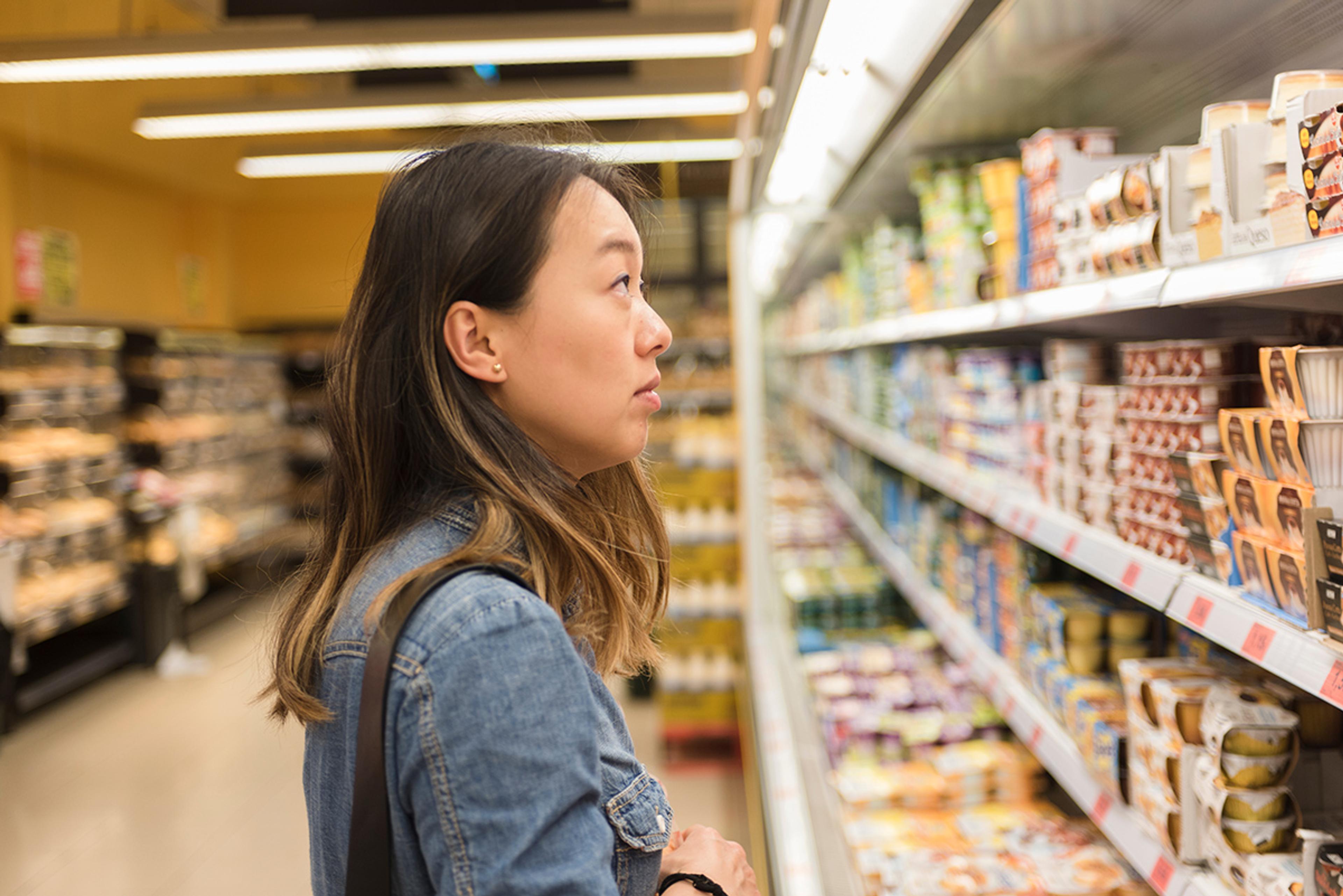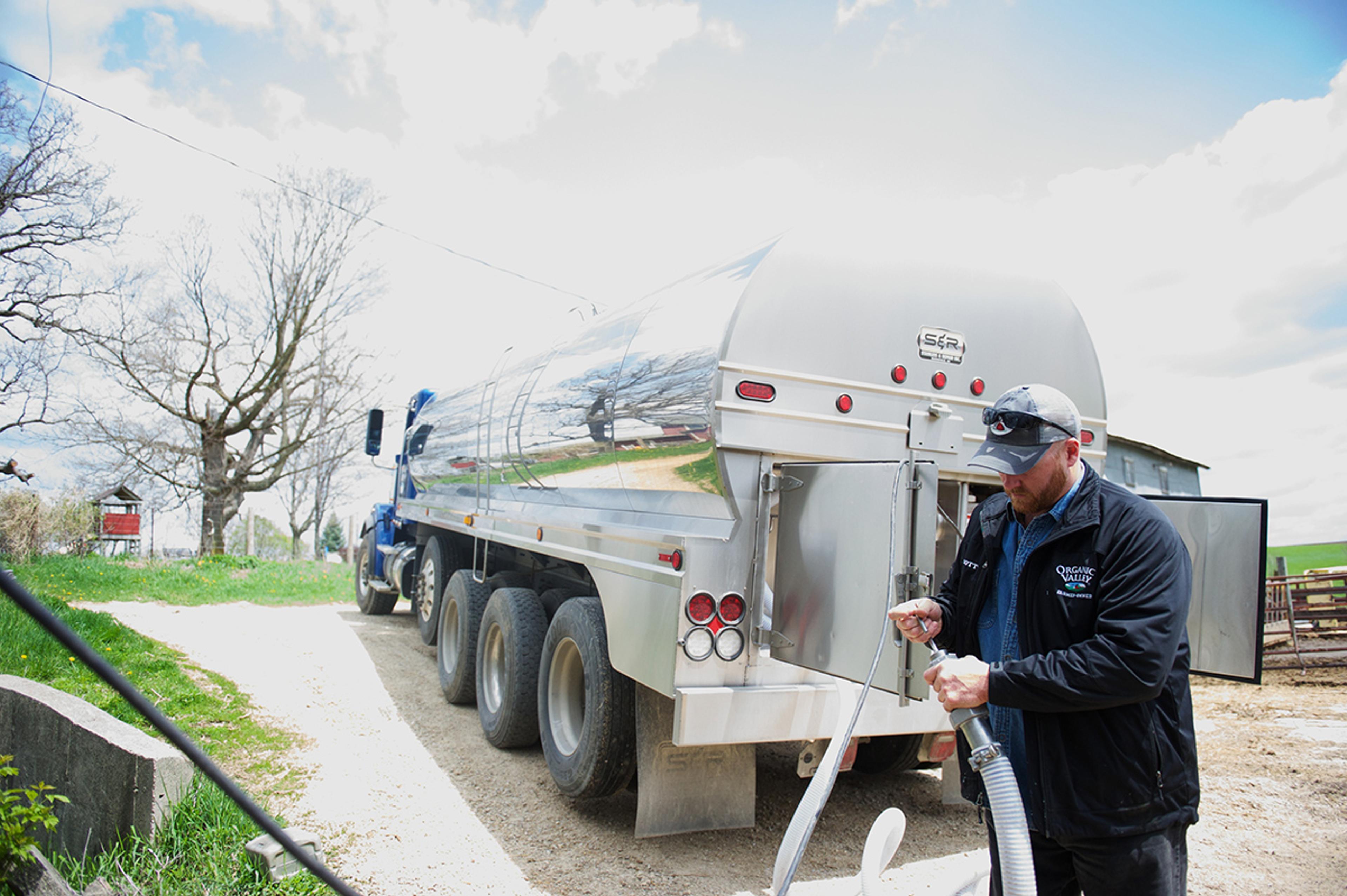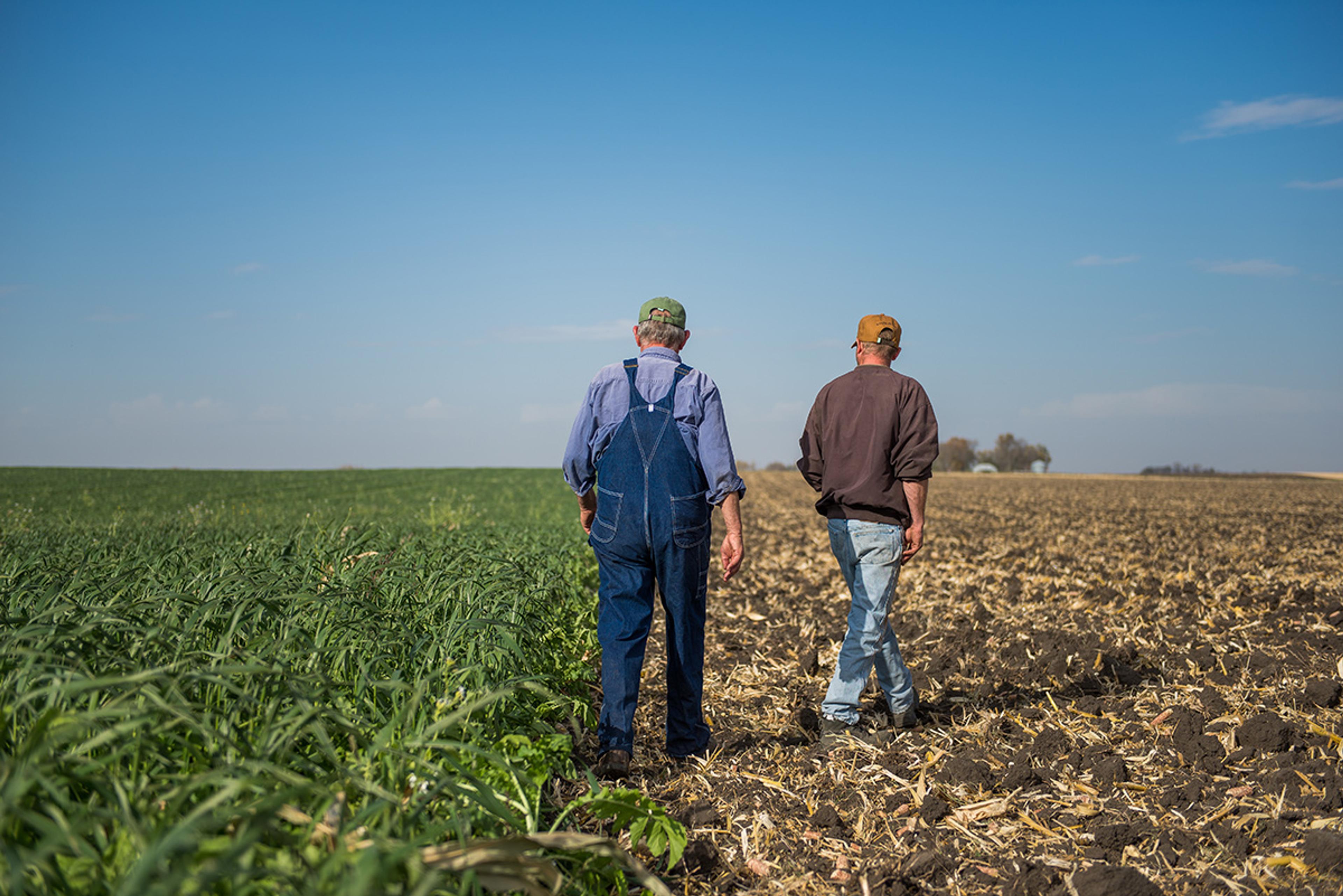
Food
Why Is Organic Food More Expensive?
There you are in the grocery store, looking at the shelf wondering why Organic Valley and other U.S. Department of Agriculture Certified Organic products are sometimes more expensive than other foods. Is organic food really worth the cost?
Organic is one of the most stringent food certifications in the country, and organic farming is an approach to growing food with nature. What does that mean, and why is organic food more expensive? We’re happy to say that a bunch of love and hard work goes into every step from the farm to your shopping basket. We are proud of what goes into Organic Valley products, so we are more than happy to reveal all that goes into what we do.
Let’s explore the who and why behind the price of organic food you see on the shelf.

Inspection at Every Step
Organic food is more expensive in part because of the strict USDA Organic certification standards required on the farm, during transportation and in production facilities. We won't go into all the details here, but in our “What does certified organic mean?” article, you'll get a better picture of all that goes into the USDA Organic seal.
In general, getting certified and maintaining certification on the farm takes time, dedication and money. All food for animals must be organic and not raised with synthetic pesticides like glyphosate or with GMOs. Cows must be outside grazing fresh pasture a certain number of days each year.
When organic milk leaves the farm and goes to the creamery, it is inspected again (and again and again ... 57 times, in fact). Each truck and facility must meet organic standards, and every step requires more time and care. It takes a lot of effort, time and expense from many, many people to ensure the organic standards — and your expectations — are met with every product.

An Organic Valley milk truck driver checks his equipment before hooking up to the farm’s bulk tank.
True Cost of Food
Organic food does often cost more, that is true. We won’t beat around that bush. And the price is higher to reflect the “true cost of food.” There are a number of things that factor into that true cost:
Smaller-scale farms
Organic Valley dairy farms are about 50% smaller than the national average, and that smaller-scale means our farms and our business don’t rely on “economies of scale” in the same way other industries do, which results in more financial cost. On the plus side, bigger is definitely not always better. Smaller-scale means more personal attention per animal, which means healthy animals and high-quality milk.
Sustainable pay for farmers
Our caretakers are compensated for the passion and investment they put into their land. In fact, at Organic Valley, our mission is to create a stable way for farmers to get paid, rather than being at the mercy of the fluctuating commodity market. Sustainable farmer pay is our cooperative’s main goal, which means we don't treat our farmer-members as just another place to cut costs. They’re paid equitably, and the business runs on the remainder — not the other way around.
Focus on pasture and grass-fed
Farming organic livestock requires more land. We put 180 days of being outside, on pasture, into every carton, sometimes more. Our farms aren't little widgets in a big factory machine churning out processed food. They are living, breathing ecosystems that we care for with every minute of hard work.
Cows on Organic Valley farms get plenty of fresh air and sunshine, and that means they get more space outside. Grazing cows outside is a beautiful way to farm and improves the happiness and health of our herds–not to mention improving the quality of the soil and biodiversity in the environment.
Grass-fed cows get most of their diet right from the fresh pasture — and our farmers give their cows more than 50% more time outside than the minimum organic standard. Grass-fed cows enjoy more time in the open air than most humans!
More labor-intensive for farmers
Some of that hard work could involve walking a pasture for hours and cutting out harmful weeds by hand because organic standards prohibit the use of toxic synthetic herbicides like glyphosate, 2-4,D or dicamba (and we wouldn’t want them on our farms anyway!). Instead, an organic farmer may need to invest in long-term and more labor-intensive pest and weed management solutions, such as habitat restoration, more frequent crop rotation and cultivation and more. Much of organic farming boils down to smart land management and good ol’ fashioned hard work.

Walking the fields at the Yokiel farm in Minnesota.
Couldn't It Be Cheaper?
Sure, it could be cheaper — if we cut corners. To make our product the best it can be, the price must reflect the true cost of producing that food. If we cut farmer pay, they may not have the money to invest in improving their farms or equipment, which could bring quality down. If we cut corners on pasture time outside for cows, we could cut costs. But since we refuse to cut corners, and because everything we do is and will always be organic, our organic food is often a more expensive choice.
That's one reason we try not to waste a single drop. Butterfat, whey, lactose, cream and every part of milk from our hard-working family farms is used in one way or another, and all eventually ends up on your shelves and in your communities. And it’s the same for our eggs, produce and meat products.
And on those occasions when we have more of a product than the market demands, Organic Valley donates food to food banks across the country. In the spirit of "never wasting a drop," organic food like shelf-stable single-serve milk makes a great addition to lunches and snacks, and it makes it safer for us to send donations. We also send organic food into areas impacted by natural and human-made disasters through our partnership with Grassroots Aid Partnership.
Is Organic Food Worth the Price?
We sure think so! Like we said above, for Organic Valley, the price of organic food includes more than 57 quality checks that take time and effort to ensure the quality of the food. It reflects smaller farms that don’t rely on economies of scale and also don’t believe they should have to “go big or get out” to make a decent living. Organic food reflects the true cost of producing food, from sustainable pay for farmers to the elimination of toxic synthetic pesticides, added hormones, antibiotics and GMOs.
You support a viable way of farming and making food with every carton of Organic Valley milk you buy. Ultimately, the decision is up to you, and we hope you will continue to choose Organic Valley and support a way of food production that’s good for your family, farmers and the planet.
Related Articles
- Tags:
- shopping

















